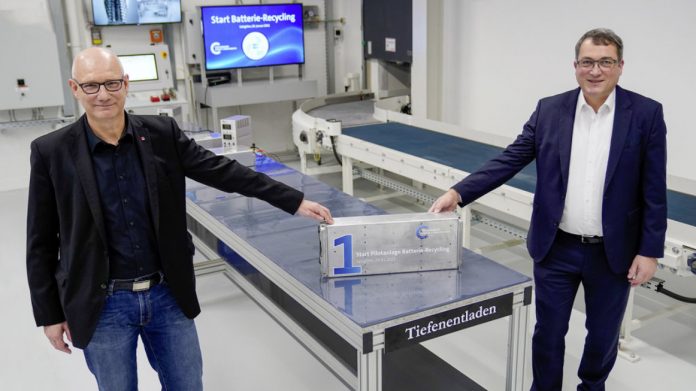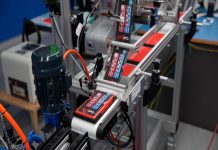
Volkswagen Group Components has opened the Group’s first plant for recycling electric car batteries in Salzgitter, Germany.
The Salzgitter plant, which only recycles batteries that can no longer be used for other purposes, utilises an innovative and CO2-saving recycling process that does not require energy-intensive melting in a blast furnace.
Volkswagen said each battery is subjected to analysis before recycling to see whether it is still powerful enough to be given a second life in mobile energy storage systems such as the flexible rapid charging station or the mobile charging robot, for example.
Once a battery is discharged and dismantled, the individual parts are ground into granules in the shredder and then dried.
In addition to aluminium, copper and plastics, the process also yields valuable “black powder”, which contains important raw materials for batteries such as lithium, nickel, manganese, and cobalt, as well as graphite.
Thomas Schmall, Chairman of the Board of Management of Volkswagen Group Components, said the aim was the industrialised recovery of these valuable raw materials in a closed loop together with aluminium, copper and plastics, achieving a recycling rate of more than 90% over the long term.
“Volkswagen Group Components has achieved a further step in its sustainable end-to-end responsibility for the battery as a key component of electric mobility,” Mr Schmall added.
“We are implementing the sustainable recyclable materials cycle – and play a pioneering role in the industry for a future-oriented issue with great potential for climate protection and raw material supply.”
Mark Möller, Head of the Business Unit Technical Development & E-Mobility, said that the separation and processing of the individual substances by hydrometallurgical processes using water and chemical agents are subsequently carried out by specialised partners.
“As a consequence, essential components of old battery cells can be used to produce new cathode material,” Mr Möller continued.
“From research, we know that recycled battery raw materials are just as efficient as new ones. In the future, we intend to support our battery cell production with the material we recover.
“Given that the demand for batteries and the corresponding raw materials will increase drastically, we can put every gram of recycled material to good use.”




















